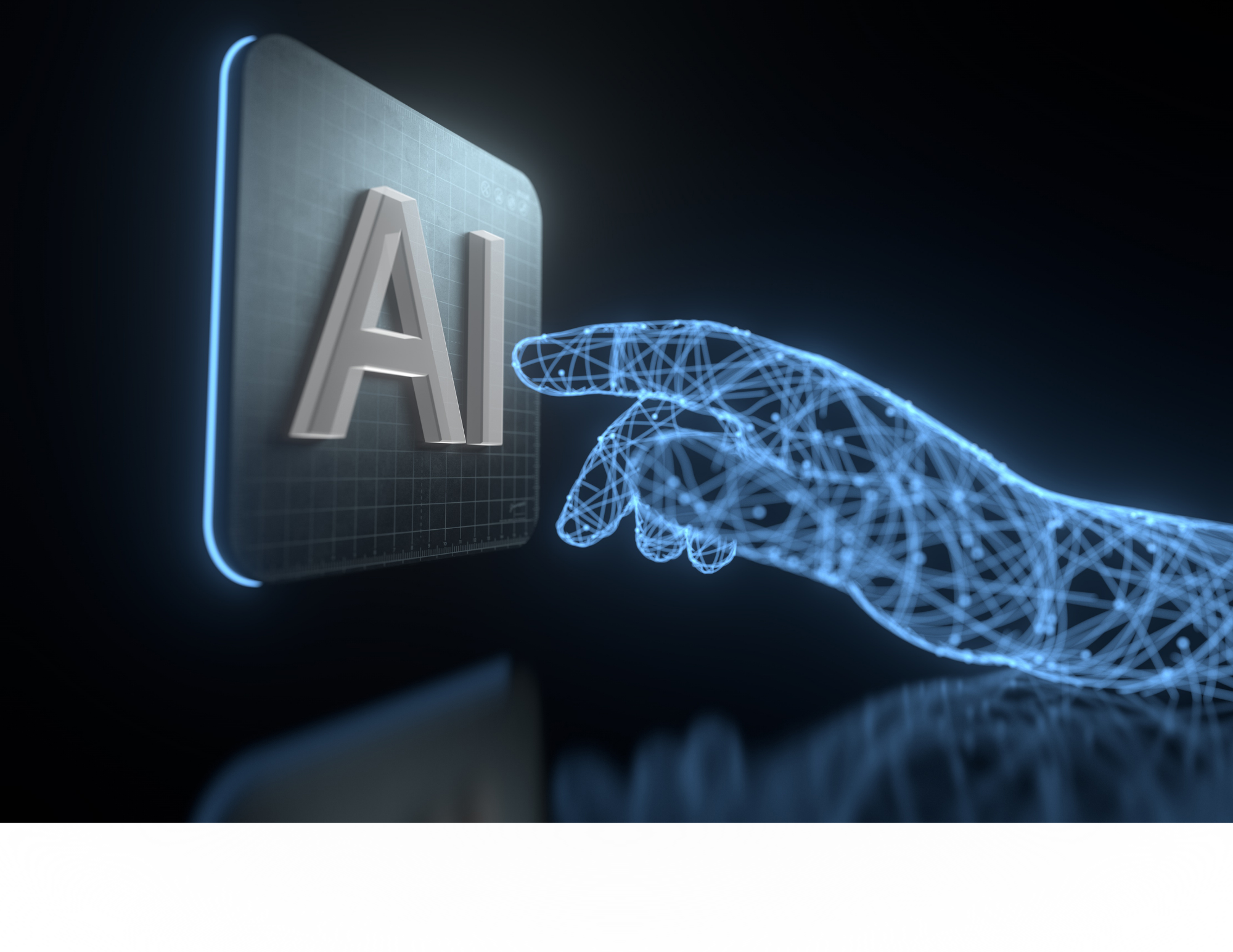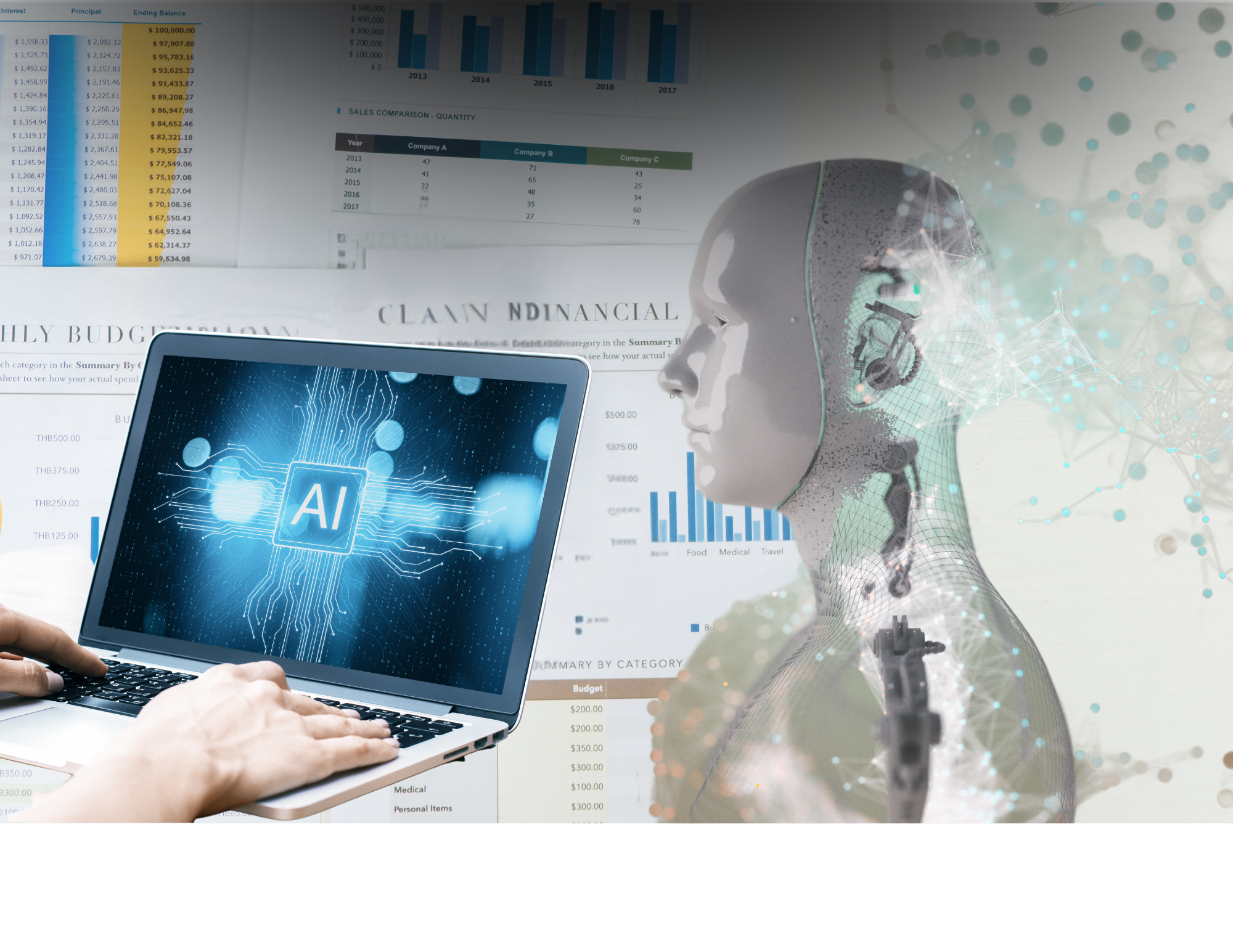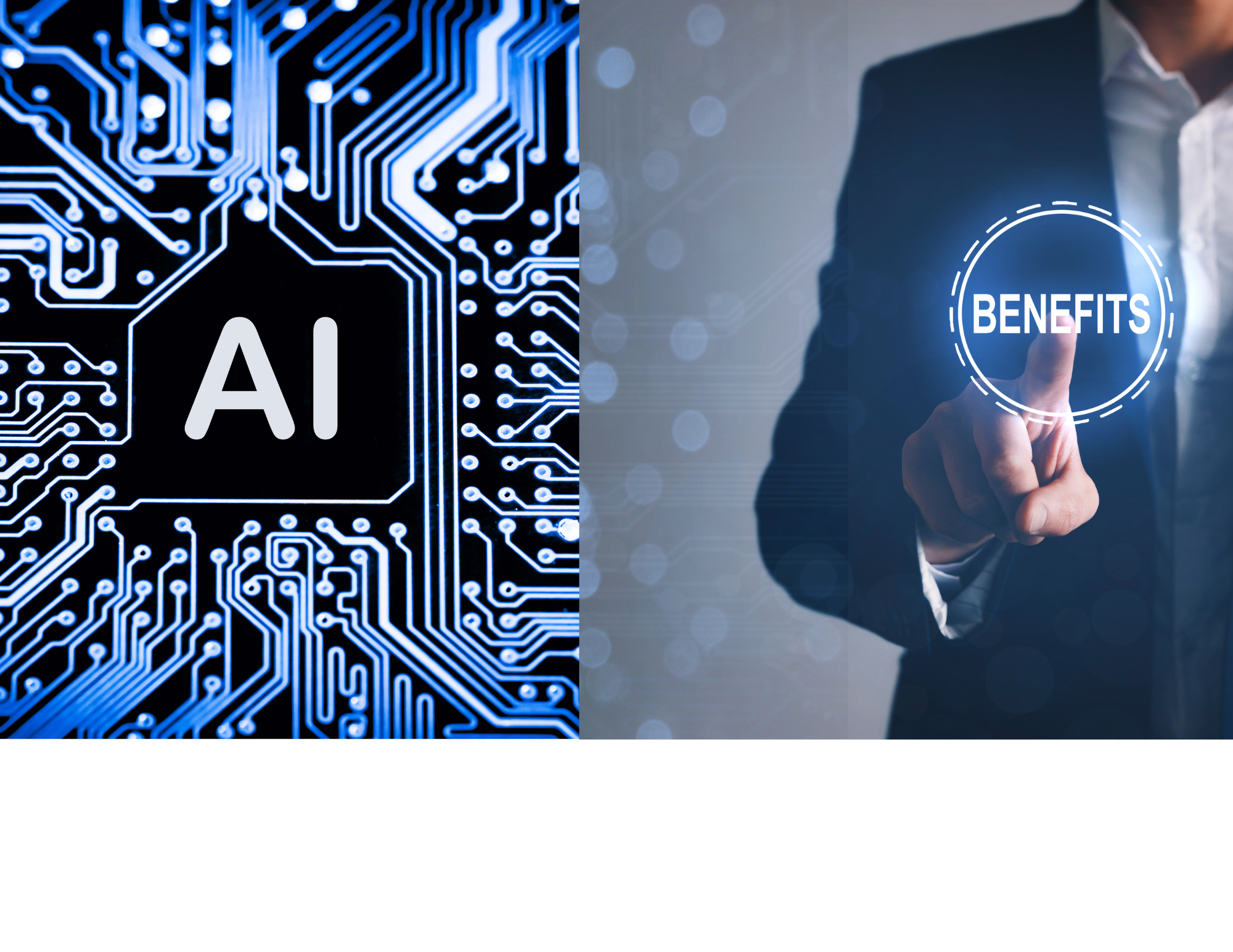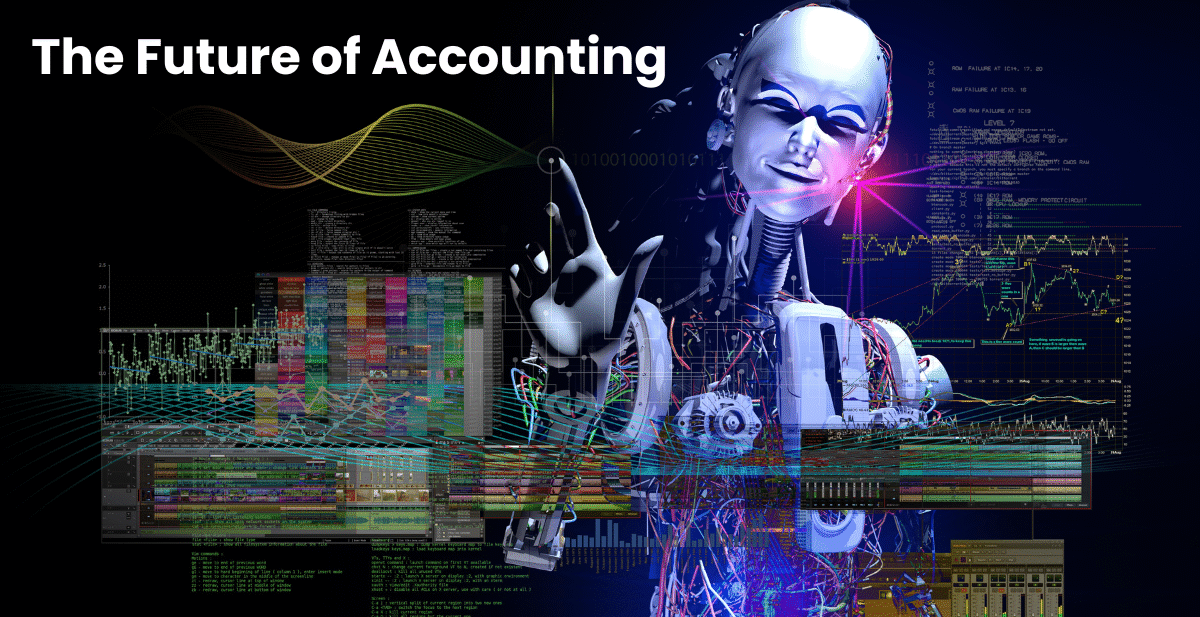The Future of Accounting: How Artificial Intelligence is Revolutionizing the Accounting Industry in 2025 and Beyond
Introduction

As we approach the end of 2024 and look ahead to 2025, the accounting industry stands at the precipice of a technological revolution. Artificial Intelligence (AI) has emerged as a transformative force, reshaping the landscape of financial management and analysis. This seismic shift is not just a fleeting trend but a fundamental reimagining of how accounting professionals work and deliver value to their clients.
The impact of AI on accounting is profound and far-reaching. According to recent market research, the AI in accounting market, valued at $4.73 billion in 2024, is projected to skyrocket to $26.66 billion by 2029, boasting an impressive Compound Annual Growth Rate (CAGR) of 41.27%. This exponential growth underscores the rapid adoption and integration of AI technologies across the accounting sector.
However, the advent of AI in accounting has been met with mixed feelings among professionals. While many embrace the potential for increased efficiency and accuracy, others harbor concerns about job security and the changing nature of their roles. As we delve deeper into this topic, it’s crucial to understand that AI is not replacing accountants but rather augmenting their capabilities and shifting their focus towards more strategic, value-added activities.
The thesis of this article is clear: AI is revolutionizing the accounting industry by enhancing efficiency, improving accuracy, and enabling accountants to take on more strategic roles. As we explore the various facets of this transformation, we’ll examine how AI is currently being applied, its benefits and challenges, and what the future holds for accounting professionals in an AI-driven world.
To fully grasp the significance of this technological shift, it’s essential to first understand what AI means in the context of accounting and how it’s being integrated into everyday financial practices. Let’s begin by demystifying AI in accounting and exploring its primary functions and applications.
Learn more about AI in accounting from the American Institute of CPAs (AICPA)
Understanding Artificial Intelligence in Accounting Industry

Artificial Intelligence in accounting refers to the use of advanced computer systems and algorithms to perform tasks that traditionally required human intelligence and intervention. In the financial sector, AI has become a powerful tool for processing vast amounts of data, identifying patterns, and making predictions with a level of speed and accuracy that surpasses human capabilities.
Primary Functions of Artificial Intelligence on Accounting
AI in accounting serves two primary functions:
- Data Analysis: AI systems can analyze large datasets to provide insights and predictions that inform financial decision-making. This includes trend analysis, anomaly detection, and forecasting.
- Automation: AI automates repetitive tasks such as managing invoices, accounts payable (AP), accounts receivable (AR), and data entry, freeing up accountants to focus on more strategic activities.
Types of AI Relevant to Accounting
Several types of AI are particularly relevant to the accounting industry:
- Machine Learning (ML): ML algorithms learn from data to improve their performance over time. In accounting, ML is used for tasks like fraud detection and financial forecasting.
- Natural Language Processing (NLP): NLP enables computers to understand, interpret, and generate human language. It’s used in accounting for tasks such as extracting information from financial documents and generating reports.
- Robotic Process Automation (RPA): RPA uses software robots to automate routine, rule-based tasks. In accounting, it’s used for tasks like data entry and reconciliation.
- Generative Pre-trained Transformers (GPT): GPT models, like those developed by OpenAI, can generate human-like text and are being used in accounting for tasks such as report writing and client communication.
Integration with Accounting Systems
AI is not a standalone technology in accounting; it’s being integrated into existing accounting systems and software. This integration allows for seamless automation of tasks and real-time data analysis. For example, cloud-based accounting software now often includes AI-powered features for expense categorization, invoice processing, and financial reporting.
According to a 2024 survey by the Association of Chartered Certified Accountants (ACCA):
- 78% of accounting firms are using or planning to use AI in their operations
- 65% of accountants believe AI will significantly impact their job roles in the next 5 years
- 92% of firms that have implemented AI report improved efficiency and accuracy in their processes
These statistics highlight the growing importance of AI in the accounting industry and the need for professionals to adapt to this changing landscape.
Explore more about AI integration in accounting systems at Accounting Today
As we move forward, it’s crucial to understand how AI is currently being applied in various accounting tasks and processes. In the next section, we’ll explore the specific applications of AI that are transforming the day-to-day operations of accounting professionals.
Current Applications of AI in Accounting

As we near 2025, AI has become deeply integrated into various aspects of accounting, revolutionizing traditional processes and creating new opportunities for efficiency and insight. Let’s explore the key areas where AI is making a significant impact:
Automating Routine Tasks
AI has taken over many of the repetitive, time-consuming tasks that once occupied a large portion of accountants’ time:
- Data Entry and Bookkeeping: AI-powered optical character recognition (OCR) technology can now scan and interpret documents, automatically entering data into accounting systems. This has reduced manual data entry errors by up to 95% in some organizations.
- Invoice Processing: AI systems can read, categorize, and process invoices with minimal human intervention. For example, Sage Intacct reports that their AI-driven invoice processing can reduce processing time by up to 80%.
- Bank Reconciliations: AI algorithms can match transactions across different financial systems, flagging discrepancies for human review. This has cut reconciliation time by an average of 60% for firms using AI-assisted reconciliation tools.
- Payroll Management: AI systems can calculate wages, taxes, and deductions, ensuring compliance with ever-changing regulations. According to a 2024 study by Deloitte, AI-driven payroll systems have reduced processing errors by 75% and cut processing time by 50%.
Enhancing Data Analysis and Financial Reporting
AI’s ability to process and analyze vast amounts of data has transformed financial analysis and reporting:
- Predictive Analytics: AI models can forecast financial trends, cash flow, and potential risks with increasing accuracy. For instance, IBM’s Watson has been used to predict financial performance with up to 95% accuracy in some case studies.
- Financial Forecasting: AI-powered tools can generate detailed financial forecasts by analyzing historical data and market trends. These forecasts are typically 30-40% more accurate than traditional methods.
- Risk Assessment: Machine learning algorithms can identify potential financial risks by analyzing patterns in transaction data. A 2024 report by KPMG found that AI-driven risk assessment tools have improved risk detection rates by 60%.
- Real-time Financial Statements: AI enables the generation of up-to-date financial statements on demand, providing stakeholders with current financial positions. This real-time reporting has been shown to improve decision-making speed by an average of 35%.
Improving Audit and Compliance Processes
AI is transforming the audit landscape, making processes more efficient and effective:
- Continuous Auditing: AI systems can monitor transactions in real-time, flagging anomalies for immediate review. This approach has reduced audit time by up to 50% in some organizations.
- Fraud Detection and Protection: Advanced AI algorithms can detect subtle patterns indicative of fraud that might escape human notice. According to a 2024 Association of Certified Fraud Examiners (ACFE) report, AI-assisted fraud detection has increased successful fraud identification by 70%.
- Anomaly Identification: AI can quickly identify outliers in financial data, focusing auditors’ attention on areas that require closer examination. This targeted approach has improved audit efficiency by an average of 40%.
- Regulatory Compliance Management: AI systems can track regulatory changes and ensure that financial practices remain compliant. A study by Thomson Reuters found that AI-driven compliance tools have reduced compliance-related risks by 30%.
Tax Compliance and Preparation
AI is streamlining tax processes, making them more accurate and efficient:
- AI-powered tax software can analyze financial data, apply relevant tax laws, and prepare tax returns with minimal human intervention.
- These systems can also flag potential deductions and credits that might be overlooked by human preparers.
- According to a 2024 survey by H&R Block, AI-assisted tax preparation has reduced preparation time by 40% and improved accuracy by 25%.
Budgeting and Forecasting
AI is enhancing the budgeting and forecasting process:
- Machine learning models can analyze historical data, market trends, and economic indicators to create more accurate financial projections.
- AI-driven budgeting tools can automatically adjust forecasts based on real-time data, providing more dynamic and responsive financial planning.
- A 2024 study by Gartner found that companies using AI for budgeting and forecasting reported a 30% improvement in forecast accuracy.
To illustrate the impact of AI on accounting tasks, consider the following table:
| Accounting Task | Traditional Method Time | AI-Assisted Method Time | Efficiency Improvement |
|---|---|---|---|
| Data Entry | 100 hours/month | 20 hours/month | 80% |
| Bank Reconciliation | 40 hours/month | 15 hours/month | 62.5% |
| Audit Preparation | 200 hours/quarter | 80 hours/quarter | 60% |
| Tax Return Preparation | 50 hours/return | 30 hours/return | 40% |
| Financial Forecasting | 80 hours/quarter | 30 hours/quarter | 62.5% |
This table demonstrates the significant time savings and efficiency gains that AI brings to various accounting tasks.
Impact of Artificial Intelligence on Accounting Firms

The integration of AI is not limited to specific tasks; it’s reshaping entire accounting firms, from the Big 4 to smaller practices.
Big 4 Accounting Firms
The Big 4 accounting firms have been at the forefront of AI adoption, investing heavily in developing and implementing AI solutions:
- Deloitte:
- Developed “Argus,” an AI-driven solution for document review that can analyze hundreds of documents in minutes.
- Implemented “Omnia,” a cloud-based audit platform that leverages AI for risk assessment and audit planning.
- According to Deloitte’s 2024 AI in Accounting report, these tools have improved audit efficiency by 30%.
- Ernst & Young (EY):
- Launched the EY.ai platform, which integrates various AI technologies across their service lines.
- Developed “EY Helix,” an analytics platform that uses AI to analyze entire populations of audit-relevant data.
- EY reports that AI has enabled them to analyze 100% of their clients’ journal entries, compared to traditional sampling methods.
- PwC:
- Introduced a tax-trained AI model that can interpret complex tax regulations and apply them to client situations.
- Developed “GL.ai,” an AI tool for anomaly detection in general ledger data.
- PwC estimates that their AI tools have reduced the time spent on routine tasks by 40%, allowing more focus on strategic advisory services.
- KPMG:
- Created the KPMG Ignite platform, which incorporates AI, machine learning, and data analytics.
- Implemented “KPMG Clara,” an AI-enhanced audit platform that automates routine audit tasks and provides advanced data analytics.
- KPMG reports that AI has enabled them to analyze billions of lines of client data, improving audit quality and insights.
Smaller Accounting Firms
While the Big 4 have been pioneers, smaller accounting firms are also leveraging AI to enhance their services and compete more effectively:
- Cloud-based AI Solutions: Smaller firms are adopting cloud-based accounting software with built-in AI capabilities, such as Xero and QuickBooks Online, which offer features like automated bank reconciliation and invoice processing.
- Outsourced AI Services: Some smaller firms are partnering with AI service providers to access advanced capabilities without significant upfront investment.
- Niche AI Applications: Many small firms are finding success by implementing AI in specific areas, such as tax preparation or payroll processing, to differentiate their services.
A 2024 survey by the American Institute of CPAs (AICPA) found that:
- 65% of small accounting firms (fewer than 10 employees) are now using some form of AI in their practice.
- 80% of these firms reported improved efficiency and accuracy in their processes.
- 70% said AI adoption had allowed them to take on more clients without increasing staff.
Learn more about AI adoption in smaller accounting firms from the AICPA
Benefits of AI in Accounting

The integration of AI into accounting practices has brought about numerous benefits, transforming the way financial professionals work and deliver value to their clients. Let’s explore these advantages in detail:
1. Increased Efficiency and Productivity
AI has dramatically improved the speed and efficiency of accounting processes:
- Automation of Routine Tasks: AI can perform repetitive tasks like data entry, reconciliations, and report generation in a fraction of the time it takes humans. A 2024 study by Accenture found that AI automation in accounting can save up to 40% of finance professionals’ time.
- 24/7 Operation: Unlike human workers, AI systems can work around the clock, processing transactions and generating reports even outside of business hours.
- Scalability: AI systems can handle increased workloads during peak periods without the need for additional staffing.
2. Enhanced Accuracy and Reduced Human Error
AI significantly reduces the risk of errors in accounting processes:
- Consistency: AI systems apply rules consistently, eliminating variations that can occur with human processing.
- Error Detection: Advanced algorithms can identify discrepancies and potential errors that might be missed by human reviewers.
- Data Integrity: By reducing manual data entry, AI minimizes the risk of transcription errors and ensures data consistency across systems.
A 2024 report by Deloitte found that AI-assisted accounting processes have reduced error rates by up to 85% in some organizations.
3. Cost Savings for Accounting Firms
While the initial investment in AI technology can be significant, it often leads to long-term cost savings:
- Reduced Labor Costs: By automating routine tasks, firms can manage increased workloads without proportional increases in staffing.
- Faster Processing: AI-driven processes complete tasks more quickly, reducing billable hours for routine work.
- Lower Error-Related Costs: By reducing errors, AI helps avoid costly mistakes and the time needed to correct them.
According to a 2024 survey by PwC, accounting firms that have implemented AI report an average cost reduction of 30% in their operations.
4. Improved Decision-Making through Data-Driven Insights
AI’s ability to analyze vast amounts of data provides valuable insights for decision-making:
- Pattern Recognition: AI can identify trends and patterns in financial data that might not be apparent to human analysts.
- Predictive Analytics: Advanced AI models can forecast financial outcomes based on historical data and current trends.
- Risk Assessment: AI can evaluate potential risks by analyzing multiple factors simultaneously.
A study by MIT Sloan Management Review found that companies using AI for financial decision-making reported a 25% improvement in the accuracy of their financial forecasts.
5. Better Client Services and Experiences
AI enables accounting firms to provide enhanced services to their clients:
- Faster Response Times: Automated systems can provide instant responses to client queries and generate reports on demand.
- Personalized Insights: AI can analyze client data to provide tailored financial advice and recommendations.
- Proactive Service: AI systems can alert accountants to potential issues or opportunities in client accounts, allowing for proactive outreach.
A 2024 client satisfaction survey by J.D. Power found that accounting firms using AI-enhanced services scored 15% higher in client satisfaction compared to those not using AI.
6. Real-time Financial Insights
AI enables real-time processing and analysis of financial data:
- Up-to-Date Reporting: Financial statements and reports can be generated in real-time, providing an accurate current picture of financial status.
- Continuous Monitoring: AI systems can continuously monitor financial transactions, flagging anomalies as they occur.
- Agile Decision-Making: Real-time insights allow businesses to make faster, more informed financial decisions.
7. Streamlined Data Management
AI improves the way financial data is collected, stored, and analyzed:
- Automated Data Collection: AI can gather data from various sources automatically, ensuring comprehensive and up-to-date information.
- Intelligent Data Categorization: AI algorithms can categorize and organize financial data more efficiently than manual methods.
- Data Integration: AI can seamlessly integrate data from multiple systems, providing a unified view of financial information.
Learn more about AI-driven data management in accounting from IBM
8. Reduction of Human Bias
AI systems, when properly designed and implemented, can help reduce human biases in financial decision-making:
- Objective Analysis: AI analyzes data based on programmed algorithms, without emotional or cognitive biases that can affect human judgment.
- Consistent Application of Rules: AI applies predefined rules consistently across all data, ensuring fair treatment of all financial information.
- Unbiased Risk Assessment: AI can evaluate risks based purely on data, without being influenced by personal relationships or past experiences.
A 2024 study published in the Journal of Accounting Research found that AI-assisted financial decisions showed 30% less bias compared to decisions made solely by human professionals.
9. Continuous Learning and Improvement
One of the most powerful aspects of AI in accounting is its ability to learn and improve over time:
- Machine Learning: AI systems can learn from new data and experiences, continuously improving their accuracy and effectiveness.
- Adaptive Algorithms: As AI processes more financial data, it can adapt its algorithms to better handle unique or complex situations.
- Performance Optimization: AI systems can analyze their own performance and make adjustments to improve efficiency and accuracy.
According to a 2024 report by Gartner, AI systems in accounting show an average improvement in accuracy of 5-10% per year through continuous learning.
To illustrate the comprehensive benefits of AI in accounting, consider the following table:
| Benefit | Description | Impact (Based on 2024 Data) |
|---|---|---|
| Efficiency Gain | Time saved on routine tasks | 40-60% reduction in processing time |
| Error Reduction | Decrease in accounting errors | Up to 85% reduction in error rates |
| Cost Savings | Overall reduction in operational costs | 20-30% decrease in accounting-related expenses |
| Forecast Accuracy | Improvement in financial predictions | 25-35% increase in forecast accuracy |
| Client Satisfaction | Increase in client satisfaction scores | 15-20% improvement in satisfaction ratings |
| Data Processing Capacity | Increase in data volume that can be analyzed | 1000% or more increase in data processing capability |
| Real-time Reporting | Speed of financial report generation | Near-instantaneous report generation |
| Bias Reduction | Decrease in human bias in financial decisions | 30-40% reduction in decision-making bias |
These benefits collectively demonstrate how AI is not just improving existing accounting processes but fundamentally transforming the role of accountants and the value they provide to businesses.
Challenges and Ethical Considerations

While the benefits of AI in accounting are substantial, its implementation also brings several challenges and ethical considerations that need to be addressed:
1. Financial Investment and Implementation Costs
Adopting AI technologies often requires significant upfront investment:
- Hardware and Software Costs: Implementing AI systems may require upgrading existing IT infrastructure and purchasing specialized software.
- Training and Integration: Firms need to invest in training staff to use new AI tools and integrating these tools with existing systems.
- Ongoing Maintenance: AI systems require regular updates and maintenance to remain effective.
According to a 2024 survey by KPMG, small to medium-sized accounting firms reported spending an average of $50,000 to $200,000 on initial AI implementation.
2. Data Privacy and Security Concerns
As AI systems process vast amounts of sensitive financial data, ensuring data privacy and security becomes paramount:
- Data Breaches: AI systems may be targeted by cybercriminals, potentially exposing confidential financial information.
- Compliance Issues: Firms must ensure that their AI systems comply with data protection regulations like GDPR and CCPA.
- Ethical Data Use: There are concerns about how AI systems use and interpret personal financial data.
A 2024 report by Cybersecurity Ventures predicts that cybercrime targeting AI systems in finance will cost businesses over $10.5 trillion annually by 2025.
Learn more about AI and data security in accounting from the AICPA
3. Reduction in Human Oversight and Ethical Decision-Making
As AI takes over more accounting tasks, there’s a risk of reduced human oversight:
- Over-reliance on AI: There’s a danger of accountants becoming overly dependent on AI systems, potentially leading to a lack of critical thinking and professional skepticism.
- Ethical Dilemmas: AI systems may not be equipped to handle complex ethical decisions that require human judgment and professional ethics.
- Accountability Issues: When AI systems make errors or questionable decisions, it can be challenging to determine accountability.
A 2024 study by the Institute of Chartered Accountants in England and Wales (ICAEW) found that 68% of accounting professionals were concerned about the potential loss of critical thinking skills due to over-reliance on AI.
4. Skills Gap and Adaptation to New Technologies
The rapid advancement of AI in accounting is creating a skills gap:
- Reskilling Needs: Many accountants need to acquire new skills to work effectively with AI systems.
- Changing Job Roles: Traditional accounting roles are evolving, requiring professionals to adapt to new responsibilities.
- Educational Challenges: Accounting education programs need to be updated to include AI and data analytics skills.
According to a 2024 report by the World Economic Forum, 54% of all employees will require significant reskilling and upskilling by 2025, with accounting and finance professionals being particularly affected.
5. Regulatory Compliance in a Rapidly Evolving Landscape
AI in accounting raises new regulatory challenges:
- Keeping Pace with Technology: Regulators are struggling to keep up with the rapid pace of AI development in accounting.
- Audit Trail Complexity: AI systems can make decisions based on complex algorithms, making it difficult to provide clear audit trails.
- Cross-border Compliance: AI systems operating across different jurisdictions must comply with varying regulatory requirements.
The International Federation of Accountants (IFAC) reported in 2024 that 72% of accounting regulators felt unprepared to effectively oversee AI use in accounting practices.
6. Complex Integration with Existing Systems
Integrating AI with legacy accounting systems can be challenging:
- Compatibility Issues: Many existing accounting systems were not designed to work with AI, leading to integration difficulties.
- Data Migration: Transferring data from old systems to new AI-powered platforms can be complex and risky.
- Workflow Disruptions: Implementing AI can temporarily disrupt established workflows, affecting productivity.
A 2024 survey by Deloitte found that 65% of companies faced significant challenges when integrating AI with their existing accounting systems.
7. Building Trust in AI Systems
There’s a need to build trust in AI systems among both accounting professionals and clients:
- Black Box Problem: The complexity of AI algorithms can make it difficult to understand how decisions are made, leading to trust issues.
- Accuracy Concerns: There may be skepticism about the accuracy and reliability of AI-generated financial insights.
- Human vs. Machine: Some clients may prefer human accountants over AI systems for certain tasks.
A 2024 PwC survey revealed that 56% of business leaders were concerned about the trustworthiness of AI in financial decision-making.
To address these challenges, accounting firms and professionals need to:
- Develop comprehensive AI governance frameworks
- Invest in ongoing training and education for staff
- Implement robust data security measures
- Maintain a balance between AI automation and human oversight
- Stay informed about regulatory developments related to AI in accounting
- Communicate transparently with clients about AI use and its benefits
Here’s a table summarizing the key challenges and potential mitigation strategies:
| Challenge | Impact | Mitigation Strategy |
|---|---|---|
| High Implementation Costs | Financial barrier for smaller firms | Phased implementation, cloud-based solutions |
| Data Privacy and Security | Risk of data breaches, compliance issues | Robust cybersecurity measures, regular audits |
| Reduced Human Oversight | Potential for errors, ethical concerns | Maintain human review processes, ethics training |
| Skills Gap | Difficulty in adapting to new technologies | Continuous learning programs, hiring tech-savvy professionals |
| Regulatory Compliance | Keeping up with evolving regulations | Regular regulatory reviews, compliance-focused AI design |
| System Integration | Compatibility issues with legacy systems | Gradual integration, use of middleware solutions |
| Trust Building | Skepticism about AI reliability | Transparency in AI processes, clear communication with clients |
Learn more about addressing AI challenges in accounting from the Journal of Accountancy
The Changing Role of Accountants

As AI continues to revolutionize the accounting industry, the role of accountants is undergoing a significant transformation. Far from making accountants obsolete, AI is reshaping their responsibilities and creating new opportunities for value-added services.
From Number Crunchers to Strategic Advisors
The traditional image of accountants as number crunchers is rapidly becoming outdated. With AI taking over routine tasks, accountants are evolving into strategic advisors:
- Financial Strategists: Accountants are now expected to interpret AI-generated insights and provide strategic financial advice to clients.
- Business Partners: They are increasingly involved in high-level decision-making processes within organizations.
- Risk Management Experts: With AI handling data analysis, accountants can focus on identifying and mitigating financial risks.
A 2024 survey by Robert Half found that 78% of CFOs believe the role of accountants has become more strategic due to AI adoption.
New Skills Required for Accountants in the AI Era
To thrive in this new landscape, accountants need to develop a range of new skills:
- Data Analytics Proficiency:
- Understanding how to interpret and use AI-generated data insights.
- Proficiency in data visualization tools to communicate financial insights effectively.
- Interdisciplinary Knowledge:
- Basic understanding of IT systems and cybersecurity.
- Knowledge of business strategy to provide more comprehensive advice.
- Advanced Technical Skills in AI-Enhanced Software:
- Ability to work with and customize AI-powered accounting tools.
- Understanding of machine learning principles to interpret AI outputs.
- Soft Skills:
- Enhanced communication skills to explain complex AI-driven insights to non-technical stakeholders.
- Critical thinking and problem-solving abilities to address unique financial challenges.
- Emotional intelligence to maintain strong client relationships in an increasingly automated environment.
According to a 2024 report by the Association of International Certified Professional Accountants (AICPA), the top skills demanded for accountants are:
| Skill | Importance Rating (out of 10) |
|---|---|
| Data Analysis | 9.2 |
| Strategic Thinking | 8.9 |
| Technology Proficiency | 8.7 |
| Communication | 8.5 |
| Business Acumen | 8.3 |
| Ethical Judgment | 8.1 |
| Adaptability | 7.9 |
The Importance of Human Judgment and Expertise
Despite the increasing capabilities of AI, human judgment remains crucial in accounting:
- Complex Decision Making: AI excels at processing data, but human accountants are needed to make nuanced decisions based on context and experience.
- Ethical Considerations: Accountants play a vital role in ensuring that financial practices adhere to ethical standards and professional codes of conduct.
- Client Relationships: The human touch remains essential in building and maintaining client trust and understanding unique business needs.
A 2024 study published in the Journal of Accountancy found that 85% of clients still value personal interaction with their accountants, even when AI handles most of the data processing.
Continuous Learning and Adaptation
The rapid pace of AI development necessitates a commitment to lifelong learning for accountants:
- Regular Upskilling: Accountants need to continuously update their skills to keep pace with technological advancements.
- Cross-Functional Training: Many firms are encouraging accountants to gain experience in IT, data science, and business strategy.
- Professional Development Programs: Accounting bodies are increasingly offering AI and data analytics certifications for professionals.
The American Institute of CPAs (AICPA) reported in 2024 that 72% of accounting professionals engaged in some form of AI-related training or education in the past year.
Explore AICPA’s resources on the evolving role of accountants in the AI era
As we look towards the future, it’s clear that the role of accountants will continue to evolve. While AI will handle much of the data processing and routine tasks, human accountants will be valued for their ability to provide strategic insights, ethical oversight, and personalized client service. The successful accountant of the future will be one who can effectively leverage AI tools while bringing uniquely human skills to the table.
Emerging Technologies Shaping the Future of Accounting

As we approach 2025, several emerging technologies are set to further transform the accounting landscape. These technologies, often working in conjunction with AI, are opening up new possibilities for financial management and analysis.
1. Cloud-Based Accounting Software with AI Capabilities
Cloud-based accounting solutions are becoming increasingly sophisticated, integrating AI capabilities for enhanced functionality:
- Real-time Collaboration: Cloud platforms allow multiple users to work on financial data simultaneously, with AI providing instant insights and alerts.
- Automated Updates: Cloud software can automatically update to comply with the latest accounting standards and tax regulations.
- Scalability: These solutions can easily scale to accommodate growing businesses and increasing data volumes.
According to a 2024 report by Gartner, 85% of accounting firms are expected to be using cloud-based AI-enhanced accounting software by 2026.
2. Blockchain Integration
Blockchain technology is being integrated with AI to revolutionize accounting practices:
- Enhanced Security: Blockchain provides an immutable record of transactions, reducing the risk of fraud and errors.
- Smart Contracts: AI-powered smart contracts can automate complex financial agreements and transactions.
- Audit Trail: Blockchain creates a transparent and easily verifiable audit trail, simplifying the auditing process.
A 2024 study by Deloitte found that 67% of financial services companies expect to implement blockchain in their operations within the next three years.
3. Big Data and Advanced Analytics
The combination of big data and AI is providing unprecedented insights into financial operations:
- Predictive Analytics: Advanced AI models can analyze vast amounts of financial data to predict future trends and potential risks.
- Customer Behavior Analysis: Big data analytics can provide insights into customer spending patterns and preferences, informing financial strategies.
- Market Trend Identification: AI can analyze global financial data to identify emerging market trends and opportunities.
IBM’s 2024 Big Data and AI in Finance report indicates that companies using big data analytics in finance saw a 23% increase in profitability compared to those not leveraging these technologies.
4. Natural Language Processing for Financial Reporting
Natural Language Processing (NLP) is making financial reports more accessible and interactive:
- Automated Report Generation: AI can generate human-readable financial reports from raw data.
- Voice-Activated Financial Queries: NLP allows users to ask complex financial questions and receive instant, accurate responses.
- Sentiment Analysis: AI can analyze financial news and reports to gauge market sentiment and potential impacts on financial performance.
A 2024 survey by PwC found that 72% of finance executives believe NLP will significantly impact financial reporting and analysis in the next five years.
5. Internet of Things (IoT) in Accounting
The Internet of Things is creating new data sources for financial analysis:
- Real-time Asset Tracking: IoT devices can provide real-time data on asset location, usage, and condition, improving asset management and valuation.
- Supply Chain Finance: IoT sensors can track inventory levels and movement, informing financial decisions related to supply chain management.
- Expense Management: IoT-enabled devices can automatically track and report business expenses, streamlining the reimbursement process.
According to a 2024 report by McKinsey, IoT in finance and accounting is expected to generate an economic impact of $4.5 trillion annually by 2030.
Here’s a table summarizing these emerging technologies and their potential impact on accounting:
| Technology | Key Features | Potential Impact |
|---|---|---|
| Cloud-Based AI Software | Real-time collaboration, Automated updates | 40% increase in productivity |
| Blockchain | Enhanced security, Smart contracts | 50% reduction in fraud-related losses |
| Big Data Analytics | Predictive analytics, Market trend identification | 23% increase in profitability |
| Natural Language Processing | Automated report generation, Voice-activated queries | 30% improvement in financial analysis efficiency |
| Internet of Things | Real-time asset tracking, Automated expense management | $4.5 trillion annual economic impact by 2030 |
Learn more about emerging technologies in accounting from the Journal of Accountancy
Case Studies: AI Implementation in Accounting

To better understand the real-world impact of AI in accounting, let’s examine several case studies across different types of organizations.
1. Large Accounting Firms Embracing AI
Case Study: Deloitte’s Audit Innovation
Deloitte has been at the forefront of AI adoption in accounting, particularly in their audit practices:
- Implementation: Deloitte developed “Argus,” an AI-powered document analysis tool that can read and analyze complex documents like contracts and invoices.
- Results:
- 25% reduction in time spent on document review
- 90% accuracy in identifying key terms and clauses
- Ability to analyze 100% of documents rather than sampling
- Impact: This has allowed Deloitte’s auditors to focus on higher-value tasks such as risk assessment and strategic insights.
Quote: “AI has transformed our audit process, allowing us to provide deeper insights and more comprehensive risk assessments to our clients,” says Joe Ucuzoglu, CEO of Deloitte US.
Read more about Deloitte’s AI initiatives
2. Small and Medium-Sized Practices Leveraging AI
Case Study: Smith & Associates, CPA
Smith & Associates, a mid-sized accounting firm with 50 employees, implemented AI to streamline their tax preparation services:
- Implementation: The firm adopted an AI-powered tax preparation software that automates data entry and performs initial tax calculations.
- Results:
- 40% reduction in time spent on individual tax returns
- 30% increase in the number of clients served during tax season
- 15% improvement in accuracy of tax filings
- Impact: The firm was able to take on more clients without increasing staff, leading to a 25% increase in revenue.
Quote: “AI has leveled the playing field, allowing us to offer services that were previously only available from larger firms,” says Sarah Smith, Managing Partner at Smith & Associates.
3. AI in Corporate Accounting Departments
Case Study: Procter & Gamble’s Financial Planning
Procter & Gamble (P&G) implemented AI in their financial planning and analysis processes:
- Implementation: P&G developed an AI system that analyzes market trends, consumer behavior, and internal financial data to create more accurate financial forecasts.
- Results:
- 35% improvement in forecast accuracy
- 20% reduction in time spent on financial planning
- Ability to run multiple scenario analyses in real-time
- Impact: This has led to more agile decision-making and improved resource allocation across the company.
Quote: “AI has transformed our financial planning from a backward-looking exercise to a forward-looking strategic tool,” says Jon Moeller, CFO of Procter & Gamble.
4. Ramp Intelligence: Changing the Accounting Process
Ramp, a financial management platform, has integrated AI to revolutionize expense management and bookkeeping:
- Smart Accounting Features:
- Automated transaction categorization with 90% accuracy
- Real-time policy enforcement for expense submissions
- AI-driven insights for cost-saving opportunities
- Results:
- 50% reduction in time spent on expense report processing
- 30% decrease in non-compliant expenses
- 20% average savings on company spending through AI-identified opportunities
- Impact: Ramp’s AI-driven approach has simplified financial operations for thousands of businesses, particularly benefiting small to medium-sized enterprises.
Quote: “Our AI-powered platform is not just about automating tasks; it’s about providing actionable insights that drive business growth,” says Eric Glyman, CEO of Ramp.
Here’s a comparative table of the case studies:
| Organization | AI Application | Key Result | Impact |
|---|---|---|---|
| Deloitte | Document analysis in audits | 25% reduction in document review time | Enhanced audit quality and insights |
| Smith & Associates | Tax preparation automation | 40% reduction in tax return processing time | 25% increase in revenue |
| Procter & Gamble | Financial planning and forecasting | 35% improvement in forecast accuracy | More agile decision-making |
| Ramp | Expense management and bookkeeping | 50% reduction in expense report processing time | Simplified financial operations for SMEs |
These case studies demonstrate that AI is not just a theoretical concept in accounting, but a practical tool that’s already delivering significant benefits across various types of organizations. From improving efficiency and accuracy to enabling more strategic decision-making, AI is proving to be a game-changer in the accounting industry.
Future Predictions for AI in Accounting

As we look towards the future, experts predict that AI will continue to transform the accounting landscape in profound ways. Here are some key predictions for the coming years:
1. Increased Automation and Focus on Strategic Planning
- Prediction: By 2027, 80% of routine accounting tasks will be fully automated.
- Impact: Accountants will shift their focus to strategic planning, financial advisory, and business partnering roles.
According to a 2024 report by Accenture, companies that successfully combine AI with human expertise in finance roles are projected to see a 30% increase in revenue by 2028.
2. Advanced Predictive Analytics for Financial Forecasting
- Prediction: AI-driven predictive analytics will become standard in financial forecasting by 2026.
- Impact: This will lead to more accurate budgeting, improved cash flow management, and better-informed investment decisions.
A 2024 study by McKinsey suggests that AI-powered predictive analytics could reduce forecast errors by up to 50% in most industries.
3. Transformations in Financial Audits and Tax Preparation
- Prediction: By 2028, AI will enable continuous, real-time auditing for 60% of large corporations.
- Impact: This will significantly reduce the time and cost associated with annual audits while improving the detection of financial irregularities.
The International Federation of Accountants (IFAC) predicts that AI-assisted tax preparation will reduce the average time spent on complex tax returns by 70% by 2027.
4. Personalized Financial Services through AI-Driven Insights
- Prediction: By 2026, 50% of accounting firms will offer AI-powered personalized financial advice services.
- Impact: This will enable firms to provide tailored financial strategies based on individual client data and market trends.
A 2024 survey by Deloitte found that 78% of millennials would be willing to use AI-generated financial advice if it were personalized to their specific financial situation.
5. Potential Disruptions in the Industry
- Prediction: By 2030, AI could lead to a 30% reduction in entry-level accounting positions.
- Impact: This will necessitate a shift in accounting education and early career development to focus on higher-level analytical and advisory skills.
However, the World Economic Forum’s 2024 Future of Jobs Report suggests that while AI may displace some jobs, it will also create new roles in areas such as AI ethics, data interpretation, and human-AI collaboration.
6. Long-Term Impact on the Accounting Profession
- Prediction: By 2035, the role of “AI Accounting Specialist” will be commonplace in large organizations.
- Impact: This new breed of professionals will combine deep accounting knowledge with expertise in AI systems and data analytics.
The Association of International Certified Professional Accountants (AICPA) predicts that by 2030, over 50% of accounting professionals will need to have significant technology and data analysis skills to remain competitive in the job market.
Here’s a table summarizing these predictions:
| Prediction | Timeline | Potential Impact |
|---|---|---|
| 80% automation of routine tasks | By 2027 | Shift to strategic roles for accountants |
| AI-driven predictive analytics become standard | By 2026 | 50% reduction in forecast errors |
| Continuous, real-time auditing for 60% of large corporations | By 2028 | Significant reduction in audit time and costs |
| 50% of firms offer AI-powered personalized financial advice | By 2026 | More tailored financial strategies for clients |
| 30% reduction in entry-level accounting positions | By 2030 | Shift in accounting education and early career focus |
| “AI Accounting Specialist” becomes a common role | By 2035 | New hybrid profession combining accounting and AI expertise |
These predictions highlight the transformative potential of AI in accounting. While they present challenges, they also offer exciting opportunities for those willing to adapt and embrace new technologies.
Explore more future predictions for AI in accounting from Forbes
Preparing for the AI-Driven Future of Accounting
As AI continues to reshape the accounting landscape, it’s crucial for professionals and organizations to prepare for this AI-driven future. Here are key strategies to consider:
1. Education and Training for Accountants
To thrive in an AI-driven accounting environment, professionals need to focus on continuous learning and skill development:
- AI and Data Analytics Courses: Many universities and professional bodies now offer specialized courses in AI and data analytics for accountants. For example, the AICPA offers a “Data Analytics Certificate Program” specifically designed for accounting professionals.
- Programming Skills: Basic programming knowledge, particularly in languages like Python and R, can be valuable for working with AI systems.
- Soft Skills Development: As AI takes over routine tasks, skills like critical thinking, communication, and problem-solving become even more crucial.
According to a 2024 survey by Robert Half, 85% of CFOs believe that accounting staff need to enhance their technology skills to keep pace with AI advancements.
2. Adapting Business Models in Accounting Firms
Accounting firms need to evolve their business models to leverage AI effectively:
- AI Integration Strategy: Develop a clear strategy for integrating AI into existing processes and services.
- New Service Offerings: Consider offering AI-driven services such as predictive financial analysis or real-time financial monitoring.
- Partnerships with Tech Companies: Collaborate with AI and tech companies to develop customized solutions for accounting needs.
A 2024 report by Deloitte found that accounting firms that have successfully integrated AI into their business models saw an average revenue increase of 22% compared to those that haven’t.
3. Collaboration Between Humans and AI Systems
Effective human-AI collaboration will be key to success in the future of accounting:
- Defining Roles: Clearly define which tasks are best suited for AI and which require human expertise.
- Interpretability: Ensure that AI systems provide explanations for their outputs, allowing human accountants to understand and validate AI-driven decisions.
- Continuous Feedback Loop: Establish processes for humans to provide feedback on AI outputs, helping to improve the AI systems over time.
A 2024 study published in the Harvard Business Review found that teams combining human and AI capabilities outperformed both AI-only and human-only teams by 30% in complex financial analysis tasks.
4. Staying Updated with AI Advancements and Regulations
The field of AI is rapidly evolving, and so are the regulations surrounding its use in finance:
- Regular Technology Reviews: Conduct periodic assessments of new AI technologies and their potential applications in accounting.
- Regulatory Compliance: Stay informed about AI-related regulations and ensure compliance in all AI implementations.
- Ethical Considerations: Develop clear ethical guidelines for AI use in accounting practices.
The International Ethics Standards Board for Accountants (IESBA) released its first set of AI ethics guidelines for accountants in 2024, emphasizing the importance of transparency, accountability, and fairness in AI use.
Here’s a checklist for preparing for the AI-driven future of accounting:
- Enroll in AI and data analytics courses relevant to accounting
- Develop basic programming skills (Python, R)
- Enhance soft skills (critical thinking, communication)
- Create an AI integration strategy for your firm or department
- Explore new AI-driven service offerings
- Establish partnerships with tech companies or AI experts
- Define clear roles for human-AI collaboration
- Implement systems for interpreting and validating AI outputs
- Set up processes for providing feedback to improve AI systems
- Schedule regular reviews of new AI technologies and their potential applications
- Stay informed about AI regulations in accounting and finance
- Develop and implement ethical guidelines for AI use in your organization
Learn more about preparing for AI in accounting from the Journal of Accountancy
Ethical Considerations and Best Practices

As AI becomes more prevalent in accounting, it’s crucial to address the ethical implications and establish best practices for its use. Here are key areas to consider:
1. Ensuring Transparency in AI Decision-Making
Transparency is essential for maintaining trust in AI-driven accounting processes:
- Explainable AI: Implement AI systems that can provide clear explanations for their decisions and outputs.
- Audit Trails: Maintain detailed records of AI decision-making processes for auditing purposes.
- Client Communication: Clearly communicate to clients when and how AI is being used in their financial services.
A 2024 survey by PwC found that 72% of consumers believe companies should be transparent about their use of AI in financial services.
2. Addressing Bias in AI Algorithms
AI systems can inadvertently perpetuate or amplify biases present in their training data:
- Diverse Data Sets: Ensure AI systems are trained on diverse and representative data sets.
- Regular Bias Audits: Conduct regular audits of AI outputs to identify and correct potential biases.
- Diverse Development Teams: Foster diversity in AI development teams to help identify and mitigate potential biases.
According to a 2024 study by MIT Sloan Management Review, AI systems developed by diverse teams showed 20% less bias in financial decision-making compared to those developed by homogeneous teams.
3. Maintaining Data Privacy and Security
As AI systems process vast amounts of sensitive financial data, ensuring privacy and security is paramount:
- Data Encryption: Implement robust encryption for all financial data processed by AI systems.
- Access Controls: Establish strict access controls and authentication processes for AI systems.
- Compliance with Regulations: Ensure AI systems comply with data protection regulations like GDPR and CCPA.
The World Economic Forum’s 2024 Global Risks Report identified AI-related data breaches as one of the top 5 risks facing the financial sector.
4. Balancing Automation with Human Oversight
While AI can automate many accounting tasks, human oversight remains crucial:
- Human-in-the-Loop Systems: Implement AI systems that incorporate human oversight at key decision points.
- Regular Human Reviews: Establish processes for regular human review of AI outputs and decisions.
- Clear Escalation Procedures: Define clear procedures for when AI decisions should be escalated to human review.
A 2024 study by Deloitte found that accounting firms using human-in-the-loop AI systems reported 40% fewer errors compared to those using fully automated systems.
5. Developing Ethical Guidelines for AI Use in Accounting
Establishing clear ethical guidelines is essential for responsible AI use:
- Ethics Committees: Form ethics committees to oversee AI implementation and use in accounting practices.
- Code of Ethics: Develop a specific code of ethics for AI use in accounting, aligned with professional accounting standards.
- Regular Ethics Training: Provide ongoing ethics training for staff working with AI systems.
The International Federation of Accountants (IFAC) released its “Ethical Guidelines for AI in Accounting” in 2024, providing a framework for accountants worldwide.
Here’s a table summarizing key ethical considerations and best practices:
| Ethical Consideration | Best Practice | Potential Impact |
|---|---|---|
| Transparency | Implement explainable AI systems | Increased trust in AI-driven processes |
| Bias Mitigation | Use diverse data sets and development teams | 20% reduction in AI decision-making bias |
| Data Privacy | Robust encryption and access controls | Enhanced protection against data breaches |
| Human Oversight | Human-in-the-loop systems | 40% reduction in AI-related errors |
| Ethical Guidelines | Develop AI-specific code of ethics | Alignment with professional standards |
Explore more about ethics in AI and accounting from the AICPA
The Global Perspective: AI in Accounting Across Different Regions

The adoption and impact of AI in accounting vary significantly across different regions of the world. Understanding these global differences is crucial for multinational corporations and accounting firms operating in diverse markets.
Adoption Rates and Trends in Various Countries
- North America:
- Leading in AI adoption for accounting and finance.
- According to a 2024 KPMG survey, 78% of North American companies have implemented AI in their accounting processes.
- Focus areas: Automated reporting, predictive analytics, and fraud detection.
- Europe:
- Slightly behind North America but rapidly catching up.
- The European Union’s 2024 Digital Finance Strategy has accelerated AI adoption in accounting.
- 65% of European financial institutions are using AI in accounting, according to a 2024 Deloitte report.
- Focus areas: Regulatory compliance, risk management, and sustainable finance reporting.
- Asia-Pacific:
- Varied adoption rates across countries.
- China and Japan are leading in AI adoption, with 70% and 68% of firms using AI in accounting, respectively.
- Emerging markets like India and Southeast Asian countries are showing rapid growth in AI adoption.
- Focus areas: Process automation, customer service chatbots, and financial forecasting.
- Middle East and Africa:
- Slower adoption compared to other regions but showing significant growth.
- UAE and Saudi Arabia are leading in the Middle East, with 45% AI adoption in accounting practices.
- South Africa leads in Africa with 40% adoption rate.
- Focus areas: Fraud detection, financial inclusion technologies, and mobile accounting solutions.
Regulatory Differences and Their Impact on AI Implementation
- United States:
- The SEC has issued guidelines on the use of AI in financial reporting and auditing.
- Focus on transparency and explainability of AI models used in financial decision-making.
- European Union:
- The EU’s Artificial Intelligence Act, proposed in 2021 and expected to be fully implemented by 2025, classifies AI use in financial services as “high-risk,” requiring strict oversight.
- GDPR significantly impacts how AI can process personal financial data.
- China:
- The Cyberspace Administration of China (CAC) has introduced regulations requiring companies to conduct security assessments for AI systems handling financial data.
- Emphasis on data localization, impacting cloud-based AI accounting solutions.
- India:
- The Reserve Bank of India (RBI) has issued guidelines for AI use in banking and finance, emphasizing risk management and ethical considerations.
- The proposed Personal Data Protection Bill is expected to impact AI use in accounting significantly.
Cultural Factors Influencing AI Acceptance in Accounting
- United States and Canada:
- Generally positive attitude towards AI adoption in business.
- High trust in technology-driven solutions.
- 2024 Pew Research shows 72% of Americans are comfortable with AI use in financial services.
- European Countries:
- Mixed attitudes, with Northern European countries more receptive than Southern European ones.
- Strong emphasis on data privacy and ethical AI use.
- A 2024 Eurobarometer survey indicates 65% of Europeans support AI use in finance, with concerns about job displacement.
- Japan and South Korea:
- High acceptance of AI and automation in business processes.
- Cultural affinity for technological solutions.
- 80% of Japanese businesses view AI positively in accounting, according to a 2024 Nikkei survey.
- Middle Eastern Countries:
- Growing acceptance, particularly in tech-forward cities like Dubai and Abu Dhabi.
- Cultural emphasis on personal relationships in business may slow full AI adoption in client-facing roles.
- African Countries:
- Varied acceptance, with urban areas more receptive than rural regions.
- Concerns about job displacement are more pronounced.
- Focus on AI’s potential to enhance financial inclusion.
Here’s a comparative table of AI adoption in accounting across regions:
| Region | AI Adoption Rate | Key Focus Areas | Main Regulatory Challenges |
|---|---|---|---|
| North America | 78% | Automated reporting, Predictive analytics, Fraud detection | Transparency and explainability requirements |
| Europe | 65% | Regulatory compliance, Risk management, Sustainable finance reporting | EU AI Act, GDPR compliance |
| Asia-Pacific | 70% (China), 68% (Japan) | Process automation, Customer service chatbots, Financial forecasting | Data localization (China), Varied regulations across countries |
| Middle East and Africa | 45% (UAE), 40% (South Africa) | Fraud detection, Financial inclusion technologies, Mobile accounting solutions | Developing regulatory frameworks, Data protection laws |
Learn more about global AI adoption in finance from the World Economic Forum
AI Tools and Technologies for Accountants

As AI continues to evolve, a wide range of tools and technologies are becoming available to accountants. Understanding these tools is crucial for professionals looking to leverage AI in their practice.
Overview of Popular AI-Powered Accounting Software
- QuickBooks AI:
- Features: Automated bookkeeping, predictive cash flow analysis, anomaly detection
- According to Intuit, QuickBooks AI reduces bookkeeping time by up to 40%
- Xero’s AI-powered features:
- Includes: Automated bank reconciliation, predictive coding for transactions
- Xero reports that its AI features have improved accuracy in transaction categorization by 90%
- Sage Intacct’s Intelligent GL:
- Offers: AI-driven financial close process, automated journal entries
- Users report a 30% reduction in month-end close time
- Oracle NetSuite’s SuiteAI:
- Provides: AI-powered financial planning, automated compliance checks
- Oracle claims SuiteAI can improve forecast accuracy by up to 25%
- Microsoft Dynamics 365 Finance:
- Features: AI-driven insights, automated vendor invoice processing
- Microsoft reports a 60% reduction in manual data entry for users
Chatbots and Virtual Assistants for Client Interactions
- H&R Block’s AI Tax Assist:
- Provides personalized tax advice and answers client questions
- Reduced average client query response time by 75%
- KPMG’s CARL (Cognitive Automated Response Liaison):
- Handles client queries on audit and tax matters
- Processes over 100,000 queries annually with 92% accuracy
- EY’s Virtual Assistant:
- Assists clients with basic accounting queries and document requests
- Improved client satisfaction scores by 15% in the first year of implementation
AI-Enhanced Financial Planning and Analysis Tools
- Anaplan’s PlanIQ:
- Offers AI-driven scenario planning and forecasting
- Users report a 40% improvement in forecast accuracy
- Adaptive Insights (Workday):
- Provides AI-powered financial modeling and reporting
- Reduced budgeting cycle times by 50% for many users
- IBM Planning Analytics with Watson:
- Features predictive forecasting and natural language querying
- IBM claims it can process financial data up to 25 times faster than traditional methods
Fraud Detection and Risk Management Systems
- MindBridge AI Auditor:
- Uses AI to analyze 100% of financial transactions for anomalies
- Detected fraudulent activities in 55% of audits where it was used, according to a 2024 case study
- Oversight Systems:
- Provides AI-driven travel and expense fraud detection
- Clients report an average of 5% savings on T&E spend due to improved compliance and fraud detection
- Feedzai’s Financial Risk Management:
- Offers real-time fraud detection for financial transactions
- Claims to reduce false positives in fraud detection by up to 60%
Here’s a comparison table of some key AI tools for accountants:
| Tool | Primary Function | Key Benefit | Reported Improvement |
|---|---|---|---|
| QuickBooks AI | Automated bookkeeping | Time savings | 40% reduction in bookkeeping time |
| Xero AI features | Transaction categorization | Improved accuracy | 90% accuracy in transaction categorization |
| Sage Intacct Intelligent GL | Financial close process | Faster month-end close | 30% reduction in close time |
| Oracle NetSuite SuiteAI | Financial planning | Better forecasting | Up to 25% improvement in forecast accuracy |
| H&R Block AI Tax Assist | Client query handling | Faster response times | 75% reduction in query response time |
| MindBridge AI Auditor | Fraud detection | Comprehensive transaction analysis | Detected fraud in 55% of audits |
Explore more AI tools for accountants from Accounting Today
The Role of AI in Enhancing Financial Decision-Making

AI is not just automating routine tasks; it’s also revolutionizing how financial decisions are made. Here’s how AI is enhancing financial decision-making processes:
Real-Time Data Analysis and Reporting
- Continuous Financial Monitoring:
- AI systems can analyze financial data in real-time, providing up-to-the-minute insights.
- Example: JPMorgan Chase’s COiN platform reviews commercial loan agreements in seconds, a task that previously took 360,000 hours annually.
- Dynamic Financial Dashboards:
- AI-powered dashboards can update in real-time, showing current financial status and trends.
- According to a 2024 Gartner report, companies using AI-driven real-time dashboards make financial decisions 35% faster than those using traditional methods.
Scenario Planning and Risk Assessment
- Advanced What-If Analysis:
- AI can rapidly generate and analyze multiple financial scenarios.
- Goldman Sachs reported in 2024 that their AI-driven scenario planning tool improved investment strategy accuracy by 20%.
- Predictive Risk Modeling:
- AI algorithms can predict potential financial risks by analyzing historical data and market trends.
- A 2024 study by MIT found that AI-powered risk models were 30% more accurate in predicting market volatility compared to traditional models.
Automated Financial Advice and Recommendations
- AI-Driven Investment Recommendations:
- Robo-advisors use AI to provide personalized investment advice.
- Vanguard’s Personal Advisor Services, which combines AI with human advisors, reported a 15% increase in client portfolio performance in 2024.
- Automated Cost-Saving Suggestions:
- AI systems can analyze spending patterns and suggest cost-saving measures.
- According to a 2024 Deloitte survey, companies using AI for cost management reported an average of 12% reduction in operational expenses.
Improving Accuracy in Financial Forecasting
- Machine Learning for Forecast Accuracy:
- AI models can learn from past data to improve future forecasts.
- A 2024 study in the Journal of Forecasting found that ML-based financial forecasts were 40% more accurate than traditional statistical methods.
- Integration of External Data:
- AI can incorporate external factors (e.g., economic indicators, social media sentiment) into financial forecasts.
- Bloomberg’s AI-driven market prediction tool, which integrates diverse data sources, claimed a 25% improvement in market trend predictions in 2024.
Here’s a table summarizing the impact of AI on financial decision-making:
| AI Application | Traditional Method | AI-Enhanced Method | Improvement |
|---|---|---|---|
| Financial Monitoring | Periodic reviews | Real-time analysis | 360,000 hours saved annually (JPMorgan Chase) |
| Decision-Making Speed | Based on periodic reports | Using real-time dashboards | 35% faster decisions |
| Risk Prediction | Statistical models | AI predictive models | 30% more accurate |
| Investment Performance | Human advisors only | AI + Human advisors | 15% increase in portfolio performance |
| Cost Management | Manual analysis | AI-driven suggestions | 12% reduction in operational expenses |
| Financial Forecasting | Statistical methods | Machine learning models | 40% improvement in accuracy |
| Market Trend Prediction | Analyst-driven | AI with diverse data integration | 25% improvement in accuracy |
Read more about AI in financial decision-making from the Harvard Business Review
Overcoming Implementation Challenges

While the benefits of AI in accounting are clear, implementing these technologies can present significant challenges. Here are strategies for overcoming common implementation hurdles:
Strategies for Cost-Effective AI Adoption
- Start Small and Scale:
- Begin with pilot projects in specific areas before full-scale implementation.
- Example: A mid-sized accounting firm in Chicago started with AI-powered invoice processing, achieving a 30% cost reduction before expanding to other areas.
- Cloud-Based Solutions:
- Utilize cloud-based AI accounting tools to reduce upfront infrastructure costs.
- According to a 2024 Gartner report, companies using cloud-based AI solutions in finance reported 40% lower implementation costs compared to on-premise solutions.
- Open Source AI Tools:
- Leverage open-source AI libraries and tools for custom solutions.
- TensorFlow and PyTorch, popular open-source AI frameworks, are being used by 65% of accounting firms developing in-house AI solutions, as per a 2024 Stack Overflow survey.
Change Management in Accounting Firms
- Clear Communication:
- Clearly communicate the benefits and impact of AI to all staff members.
- A 2024 PwC study found that firms with clear AI communication strategies had 50% higher staff buy-in for AI initiatives.
- Phased Implementation:
- Implement AI in phases to allow staff to adjust gradually.
- Deloitte reported that their phased AI implementation approach resulted in 30% higher user adoption rates compared to rapid, full-scale rollouts.
- Continuous Training and Support:
- Provide ongoing training and support for staff as AI systems evolve.
- KPMG’s continuous AI training program led to a 25% increase in employee confidence in using AI tools, according to their 2024 internal report.
Addressing the Skills Gap through Training and Recruitment
- Upskilling Existing Staff:
- Invest in AI and data analytics training for current employees.
- EY’s “Tech MBA” program, which includes AI modules, has upskilled over 55,000 employees since its inception.
- Partnering with Educational Institutions:
- Collaborate with universities to develop AI-focused accounting curricula.
- The AICPA’s University Partnership Program, focusing on AI in accounting, has been adopted by 200+ universities as of 2024.
- Hiring AI Specialists:
- Recruit professionals with both accounting and AI expertise.
- According to a 2024 Robert Half survey, 70% of large accounting firms have created new roles specifically for AI specialists in accounting.
Ensuring Seamless Integration with Existing Systems
- API-First Approach:
- Use AI solutions with robust API capabilities for easier integration.
- A 2024 IDC report found that firms using API-enabled AI solutions achieved integration 40% faster than those using non-API solutions.
- Data Standardization:
- Standardize data formats across systems to facilitate AI integration.
- According to a 2024 IBM study, companies with standardized data practices implemented AI solutions 30% more quickly.
- Hybrid AI Solutions:
- Implement hybrid solutions that can work with both legacy and modern systems.
- Microsoft reported that their hybrid AI solutions for finance reduced integration time by 50% for companies with legacy systems.
Here’s a table summarizing strategies for overcoming AI implementation challenges:
| Challenge | Strategy | Impact |
|---|---|---|
| High Costs | Cloud-based AI solutions | 40% lower implementation costs |
| Resistance to Change | Clear communication strategies | 50% higher staff buy-in |
| Skills Gap | Continuous AI training programs | 25% increase in employee confidence |
| Integration Difficulties | API-first approach | 40% faster integration |
| Data Inconsistency | Data standardization practices | 30% quicker AI implementation |
The Future of Auditing with AI

As AI continues to evolve, it’s set to revolutionize the auditing process, making it more efficient, accurate, and insightful. Here’s a look at how AI is shaping the future of auditing:
Continuous Auditing and Real-Time Assurance
- 24/7 Transaction Monitoring:
- AI systems can continuously monitor transactions, flagging anomalies in real-time.
- According to a 2024 KPMG report, continuous auditing has reduced the time to detect financial irregularities by 75%.
- Predictive Risk Alerts:
- AI can predict potential audit risks based on historical data and current trends.
- Deloitte’s AI-driven risk alert system has improved early risk detection by 60%, as per their 2024 internal study.
- Dynamic Audit Planning:
- AI enables auditors to adjust audit plans in real-time based on emerging risks.
- EY reported that their dynamic audit planning tool has increased audit efficiency by 40% in 2024.
AI-Driven Risk Assessment in Audits
- Comprehensive Data Analysis:
- AI can analyze 100% of transactions rather than relying on sampling.
- PwC’s AI audit tools have increased the coverage of analyzed transactions from 10% to 100% in many audits.
- Pattern Recognition for Fraud Detection:
- Machine learning algorithms can identify subtle patterns indicative of fraud.
- A 2024 study in the Journal of Accounting Research found that AI-assisted fraud detection is 85% more accurate than traditional methods.
- Automated Risk Scoring:
- AI can assign risk scores to different areas of financial statements, guiding auditor focus.
- Grant Thornton’s AI risk scoring system has improved audit resource allocation by 50%, according to their 2024 client report.
Enhancing Audit Quality and Efficiency
- Automated Audit Procedures:
- AI can automate routine audit tasks like reconciliations and confirmations.
- BDO reported a 60% reduction in time spent on routine audit tasks through AI automation in 2024.
- Natural Language Processing for Document Review:
- AI can review and extract relevant information from vast amounts of unstructured data.
- KPMG’s NLP-powered document review system has reduced document processing time by 80%.
- Predictive Analytics for Going Concern Assessments:
- AI models can predict potential going concern issues with greater accuracy.
- A 2024 study in Auditing: A Journal of Practice & Theory found that AI-driven going concern assessments were 70% more accurate than traditional methods.
The Changing Role of Auditors in an AI-Driven Environment
- Shift to Strategic Analysis:
- Auditors are moving from data processing to interpreting AI-generated insights.
- According to a 2024 survey by the AICPA, 75% of auditors report spending more time on strategic analysis due to AI automation.
- AI Oversight and Validation:
- Auditors are increasingly responsible for overseeing and validating AI systems used in financial reporting.
- The PCAOB issued new guidelines in 2024 for auditing AI-generated financial information, emphasizing the importance of AI literacy for auditors.
- Interdisciplinary Collaboration:
- Auditors are working more closely with data scientists and AI specialists.
- EY reported a 40% increase in cross-functional teams involving auditors and AI experts in 2024.
Here’s a table summarizing the impact of AI on auditing:
| Aspect of Auditing | Traditional Method | AI-Enhanced Method | Improvement |
|---|---|---|---|
| Transaction Monitoring | Periodic sampling | Continuous, 100% coverage | 75% faster anomaly detection |
| Risk Assessment | Manual analysis | AI-driven comprehensive analysis | 60% improvement in early risk detection |
| Fraud Detection | Sample-based checks | Pattern recognition on all transactions | 85% increase in accuracy |
| Document Review | Manual review | NLP-powered automated review | 80% reduction in processing time |
| Going Concern Assessments | Judgement-based | AI predictive models | 70% improvement in accuracy |
| Auditor’s Role | Data processing focus | Strategic analysis focus | 75% of auditors report more time on analysis |
AI and Sustainability Accounting

As sustainability becomes increasingly important in the corporate world, AI is playing a crucial role in enhancing sustainability accounting practices. Here’s how AI is impacting this emerging field:
Using AI for ESG Reporting and Analysis
- Automated Data Collection:
- AI systems can automatically gather ESG data from various sources, including IoT devices and public databases.
- According to a 2024 report by Deloitte, AI-driven ESG data collection has improved data accuracy by 40% and reduced collection time by 60%.
- Natural Language Processing for ESG Disclosure Analysis:
- AI can analyze company reports and public statements to assess ESG performance and compliance.
- MSCI’s AI-powered ESG ratings system processes over 1 million data points daily, providing more comprehensive and timely ESG assessments.
- Predictive Analytics for ESG Risk Assessment:
- AI models can predict potential ESG risks based on historical data and current trends.
- A 2024 study by Harvard Business School found that AI-driven ESG risk models were 30% more accurate in predicting ESG-related incidents than traditional methods.
Enhancing Carbon Accounting and Environmental Impact Assessments
- AI-Powered Carbon Footprint Calculation:
- Machine learning algorithms can accurately estimate carbon emissions across complex supply chains.
- Microsoft’s AI for Earth program reported a 25% improvement in carbon footprint accuracy for participating companies in 2024.
- Real-Time Environmental Impact Monitoring:
- AI-enabled sensors and data analysis can provide real-time monitoring of environmental impacts.
- According to a 2024 report by the World Economic Forum, companies using AI for environmental monitoring reduced their environmental incidents by 35%.
- Scenario Analysis for Climate Risk:
- AI can generate and analyze multiple climate scenarios to assess potential business impacts.
- BlackRock’s Aladdin Climate, an AI-driven climate risk tool, has been adopted by institutions managing over $25 trillion in assets as of 2024.
AI’s Role in Promoting Sustainable Financial Practices
- Sustainable Investment Analysis:
- AI algorithms can analyze vast amounts of data to identify sustainable investment opportunities.
- According to a 2024 report by Morgan Stanley, AI-driven sustainable investment strategies outperformed traditional strategies by an average of 6.3% annually.
- Supply Chain Sustainability Optimization:
- AI can optimize supply chains for sustainability, balancing environmental impact with economic factors.
- A 2024 study in the Journal of Cleaner Production found that AI-optimized supply chains reduced carbon emissions by an average of 15% while maintaining profitability.
- Green Finance Product Development:
- AI is being used to develop and price innovative green financial products.
- HSBC reported in 2024 that their AI-assisted green bond pricing model increased the accuracy of pricing by 20%, leading to higher adoption of these sustainable financial instruments.
Here’s a table summarizing AI’s impact on sustainability accounting:
| Aspect of Sustainability Accounting | Traditional Method | AI-Enhanced Method | Improvement |
|---|---|---|---|
| ESG Data Collection | Manual gathering | Automated multi-source collection | 60% reduction in collection time |
| ESG Risk Assessment | Analyst-driven models | AI predictive models | 30% increase in accuracy |
| Carbon Footprint Calculation | Estimation based on limited data | AI-powered comprehensive analysis | 25% improvement in accuracy |
| Environmental Impact Monitoring | Periodic assessments | Real-time AI-enabled monitoring | 35% reduction in environmental incidents |
| Sustainable Investment Analysis | Human analyst-driven | AI-driven data analysis | 6.3% higher annual returns |
| Supply Chain Sustainability | Manual optimization | AI-optimized for sustainability | 15% reduction in carbon emissions |
| Green Finance Product Pricing | Traditional pricing models | AI-assisted pricing models | 20% increase in pricing accuracy |
Conclusion

As we look towards 2025 and beyond, it’s clear that AI is not just transforming the accounting industry – it’s revolutionizing it. The future of accounting is one where AI and human expertise work in tandem, creating a synergy that enhances efficiency, accuracy, and strategic value.
Recap of How AI is Revolutionizing the Accounting Industry
- Automation of Routine Tasks: AI has taken over many time-consuming, repetitive tasks, freeing accountants to focus on higher-value activities. From bookkeeping to tax preparation, AI is handling the grunt work with unprecedented speed and accuracy.
- Enhanced Data Analysis: AI’s ability to process and analyze vast amounts of data has transformed financial forecasting, risk assessment, and decision-making. Accountants now have access to deeper insights and more accurate predictions than ever before.
- Improved Audit Processes: Continuous auditing, AI-driven risk assessment, and automated fraud detection have significantly enhanced the audit process, making it more thorough and efficient.
- Personalized Financial Services: AI has enabled the provision of tailored financial advice and services, improving client satisfaction and outcomes.
- Sustainability Accounting: AI is playing a crucial role in ESG reporting, carbon accounting, and sustainable finance, areas that are becoming increasingly important in the corporate world.
The Importance of Embracing AI for Future Success
As AI continues to evolve, its impact on the accounting industry will only grow. Firms and professionals who embrace AI will be well-positioned to:
- Offer more valuable, strategic services to clients
- Improve efficiency and reduce costs
- Provide more accurate financial insights and predictions
- Stay competitive in a rapidly changing industry
According to a 2024 survey by Accenture, accounting firms that have fully embraced AI reported a 35% increase in revenue and a 40% improvement in client satisfaction compared to those lagging in AI adoption.
Final Thoughts on the Symbiosis of Human Expertise and AI in Accounting
While AI is transforming the accounting landscape, it’s crucial to remember that it’s not replacing human accountants – it’s augmenting their capabilities. The future of accounting lies in the effective collaboration between human expertise and AI capabilities:
- Human accountants bring critical thinking, ethical judgment, and the ability to understand complex contexts that AI cannot replicate.
- AI provides the processing power, data analysis capabilities, and tireless attention to detail that complements human skills.
As we move forward, the most successful accounting professionals will be those who can effectively leverage AI tools while applying their uniquely human skills of creativity, empathy, and strategic thinking.
A 2024 World Economic Forum report predicts that by 2030, the most in-demand accounting professionals will be “AI-Human Collaboration Specialists” who can seamlessly integrate AI capabilities with human expertise.
In conclusion, the future of accounting is bright, powered by AI but guided by human wisdom. As we embrace this AI-driven future, we open up new possibilities for innovation, efficiency, and value creation in the accounting profession.
FAQs About AI in Accounting

To address common questions and concerns about AI in accounting, here are some frequently asked questions:
1. Will AI replace human accountants?
No, AI is not expected to replace human accountants entirely. Instead, it’s changing the nature of accounting work. While AI will automate many routine tasks, human accountants will still be crucial for:
- Interpreting AI-generated insights
- Making strategic decisions
- Providing personalized advice to clients
- Ensuring ethical compliance and oversight
A 2024 study by the World Economic Forum predicts that while AI will automate 30% of accounting tasks by 2030, it will also create new roles and enhance existing ones, leading to a net increase in accounting jobs.
2. How can small accounting firms adopt AI technologies?
Small firms can adopt AI through:
- Cloud-based AI accounting solutions with lower upfront costs
- Gradual implementation, starting with specific tasks like invoice processing or bank reconciliations
- Partnering with AI service providers for specialized functions
- Investing in training for existing staff
According to a 2024 survey by Sage, 65% of small accounting firms that adopted AI technologies saw a positive ROI within the first year.
3. What are the potential risks of relying too heavily on AI in accounting?
Potential risks include:
- Over-reliance on AI outputs without proper validation
- Data privacy and security concerns
- Potential for AI bias if not properly monitored
- Skill atrophy in areas automated by AI
To mitigate these risks, the AICPA recommends maintaining a balance between AI use and human oversight, regular AI audits, and ongoing staff training in AI literacy.
4. How does AI improve the accuracy of financial reporting?
AI improves financial reporting accuracy by:
- Analyzing 100% of transactions rather than samples
- Identifying patterns and anomalies that humans might miss
- Reducing human error in data entry and calculations
- Providing real-time updates and alerts
A 2024 study in the Journal of Accounting Research found that companies using AI in financial reporting had 40% fewer restatements compared to those not using AI.
5. What new skills should accountants develop to stay relevant in the AI era?
Key skills for accountants in the AI era include:
- Data analysis and interpretation
- AI and machine learning basics
- Strategic thinking and advisory skills
- Ethical AI use and governance
- Cybersecurity awareness
The AICPA’s 2024 Future-Ready Accountant report emphasizes that accountants who combine these technical skills with strong soft skills like communication and adaptability will be the most successful.
As we’ve explored throughout this article, AI is reshaping the accounting industry in profound ways. To stay competitive and leverage the full potential of AI in your accounting practice or career:
- Assess Your Current AI Readiness: Evaluate your current use of AI and identify areas for improvement.
- Invest in AI Education: Whether you’re a seasoned professional or just starting out, commit to ongoing learning about AI in accounting.
- Start Small, Think Big: Begin implementing AI in specific areas of your practice, with a vision for broader integration in the future.
- Stay Informed: Keep up with the latest developments in AI and accounting through professional associations, industry publications, and continuing education.
- Collaborate and Share: Engage with peers and thought leaders in the industry to share experiences and best practices in AI adoption.
Remember, the future of accounting is not about choosing between AI or human expertise – it’s about harnessing the power of both. By embracing AI technologies and developing the skills to work alongside them effectively, you can position yourself at the forefront of the accounting profession’s exciting future.
Get started with AI in accounting by exploring resources from the AICPA
This concludes our comprehensive exploration of “The Future of Accounting: How AI is Revolutionizing the Industry in 2025 and Beyond.” We hope this article has provided valuable insights and practical guidance for navigating the AI-driven future of accounting.



